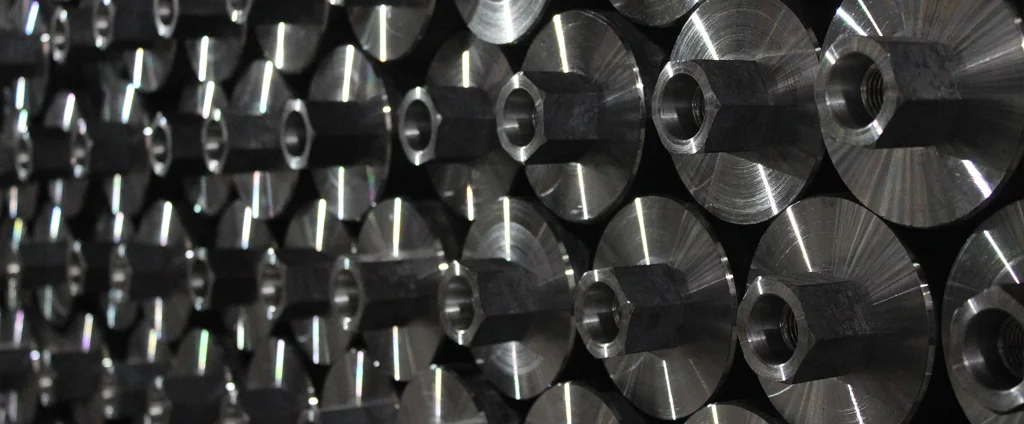SAE/AISI 4140 Alloy Steel (UNS G41400)

SAE/AISI 4140 alloy steel is widely recognized for its exceptional strength, toughness, and wear resistance. Its versatile properties make it a preferred choice in industries such as automotive, construction, oil and gas, and machinery manufacturing, where durability and performance are critical.
| Chemical Composition | ||
|---|---|---|
| Element | Min | Max |
| Iron | 96.78% | 97.77% |
| Carbon | 0.38% | 0.43% |
| Chromium | 0.80% | 1.10% |
| Manganese | 0.75% | 1.00% |
| Molybdenum | 0.15% | 0.25% |
| Phosphorous | —— | 0.035% |
| Silicon | 0.15% | 0.30% |
| Sulfur | —— | 0.04% |
The following table provides a list of SAE/AISI 4140 properties in both SI and US customary/Imperial units.
Click on the button to switch between Metric and Imperial units.
| Physical Properties | Metric |
|---|---|
| Density | 7850 kg/m3 |
| Mechanical Properties | Metric |
| Tensile Strength (Ultimate) | 655 MPa |
| Tensile Strength (Yield) | 415 MPa |
| Young’s Modulus (E) | 190 - 210 GPa |
| Bulk Modulus (K) | 140 GPa |
| Shear Modulus (G) | 80 GPa |
| Elongation at Break | 26% |
| Poisson’s Ratio (ν) | 0.27 - 0.30 |
| Brinell Hardness | 197 |
| Thermal Properties | Metric |
| Thermal Conductivity | 42.6 W/m·K |
| Specific Heat Capacity (Cp) | 470 J/kg·K |
| Coefficient of Thermal Expansion (αL) | 1.22×10-5 1/°C |
| Electrical Properties | Metric |
| Electrical Conductivity | 4.23×106 S/m |
| Electrical Resistivity | 2.36×10-7 Ω·m |
The values in this table are approximate and can vary depending on various factors such as the specific manufacturing process and heat treatment applied to the alloy.
Advantages & Disadvantages of 4140 Alloy Steel
| Advantages | Disadvantages |
|---|---|
| High strength and toughness | Relatively low corrosion resistance |
| Excellent wear resistance | Requires proper heat treatment for optimal properties |
| Good machinability | May be more expensive than carbon steels |
| Versatile and widely available | Prone to distortion during heat treatment |
| Can be easily welded and fabricated | Moderate to high carbon content may lead to reduced weldability |
| Suitable for a wide range of applications | Requires appropriate tooling for machining |
Applications of 4140 Alloy Steel
Due to its excellent combination of strength, toughness, and wear resistance, 4140 alloy steel is extensively used across various industries, including:
- Automotive: Used in components like crankshafts, axle shafts, gears, and connecting rods.
- Oil and Gas Industry: Employed in drill collars, tool joints, and drilling equipment benefiting from its high strength and hardness.
- Construction and Heavy Equipment: Utilized in manufacturing crane booms, shafts, and structural parts of machinery.
- Tooling and Machining: Valued for good machinability and high hardness post-heat treatment, ideal for tooling components.
- Aerospace: Applied in select aerospace parts requiring high strength and toughness.
- Power Generation: Incorporated in turbine shafts, rotor shafts, and generator components.
- Mining and Quarrying: Used in rock crushers, gears, and conveyor components for superior wear resistance and strength.
- Firearms and Defense: Favored for firearm and military equipment parts due to durability and impact resistance.
